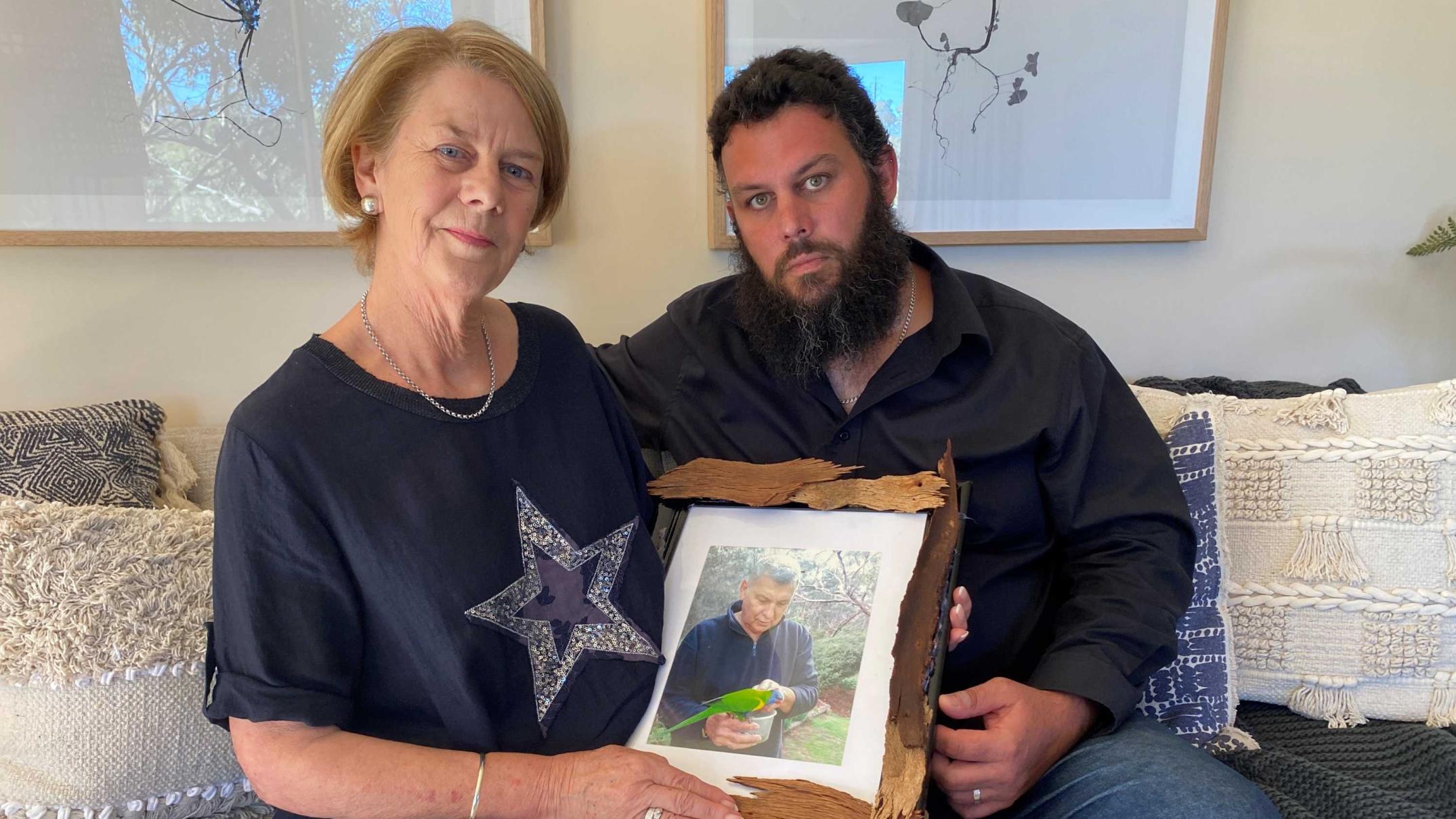When Barb Spriggs found her husband lying on the ground of the Oakden aged care facility with two nurses standing either side of him she knew something had to change.
Key points:
- The final report from the Royal Commission into Aged Care Quality and Safety has been released
- The family who blew the whistle on the Oakden aged care facility has called for the recommendations to be implemented
- Barb and Clive Spriggs have been fighting for change for five years
“I can still picture Bob laying there,” Mrs Spriggs said.
“He had been over-medicated so he wasn’t able to speak, [he was] crying, trying to tell me that something was wrong.
Bob Spriggs, 66, died in 2016 while he was a resident of the government-run Oakden facility in South Australia.
In the final weeks of his life, Mr Spriggs was overdosed with 10 times his prescribed amount of medication on at least three occasions.
He was also rushed to hospital with severe bruising, believed to be caused by the use of restraints.
Supplied: Barb Spriggs
)The horrific abuse led Mrs Spriggs and her children to voice their concerns publicly in 2017.
Their courage paved the way for others to come forward and Oakden was shut down later that year.
Two years later, in 2019, the pair were the first to give evidence in the Royal Commission into Aged Care Quality and Safety.
Hundreds of families followed suit, telling the commission their distressing accounts of how the country’s broken aged care system had also failed their loved ones.
After more than 10,500 public submissions, 641 witnesses and 23 public hearings, the royal commission’s final report has been published.
The report, released by commissioners Tony Pagone and Lynelle Briggs, makes 148 recommendations following a two-year investigation into the sector.
The scathing assessment has prompted the Federal Government to spend almost half a billion dollars on immediate measures to overhaul the aged care sector.
“Over the two years of our inquiry, we have catalogued the failures of the system, shining a light on the egregious abuse, mistreatment and neglect that we discovered.”
ABC News: Matt Coleman
)Closure after five years of fighting for change
For Mrs Spriggs and her son Clive, the report’s recommendations have come after five years of fighting for change.
“It means a great deal that to think that all that we have been through as a family has made a change, not just for people in South Australia, but for the whole of Australia,” Mrs Spriggs said.
She said her husband would be very proud of what they have helped accomplish.
“He always believed that things had to be done, they had to be done properly and if they weren’t there was a consequence to be paid,” Mrs Spriggs said.
“He would be absolutely blown away with what’s been uncovered because of what he went through and what his family has fought for, for him and for others.”
Clive Spriggs said it was crucial the recommendations were implemented because no-one should ever have to go through what his father endured.
The recommendations include approving home care packages within one month from the date of a person’s assessment and clearing the waitlist by the end of the year.
It also recommends the Aged Care Act be replaced and for all staff in aged care to have a minimum level of training.
National Seniors Australia spokesman Ian Henschke welcomed the recommendations.
“We have got to put an end to rationing — that’s the number one thing that has to be done, that’s why they need a new act,” he said.
“The generation coming through now is the Baby Boomers, and there is 5.8 million of them, so I think the Government realises that this has got a historical force behind it now where people are demanding change.”




